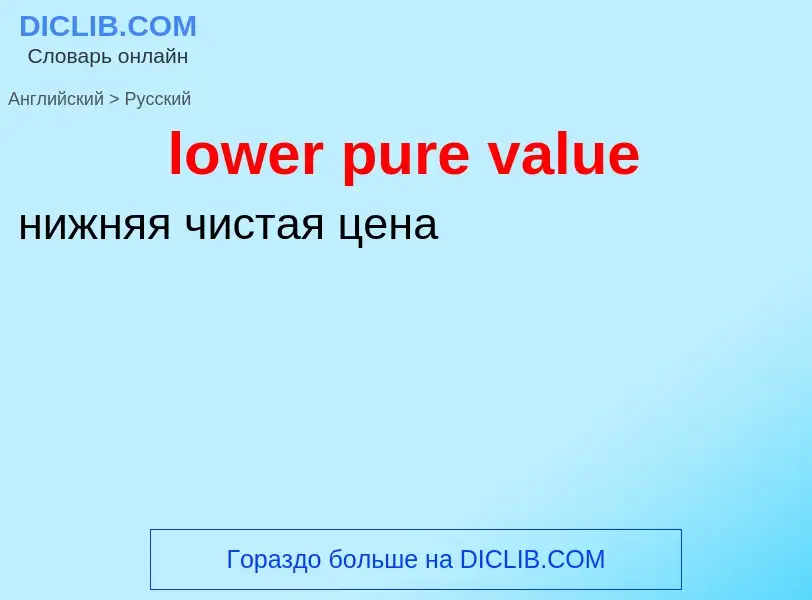Traducción y análisis de palabras por inteligencia artificial ChatGPT
En esta página puede obtener un análisis detallado de una palabra o frase, producido utilizando la mejor tecnología de inteligencia artificial hasta la fecha:
- cómo se usa la palabra
- frecuencia de uso
- se utiliza con más frecuencia en el habla oral o escrita
- opciones de traducción
- ejemplos de uso (varias frases con traducción)
- etimología
lower pure value - traducción al ruso
нефтегазовая промышленность
масло без присадок
[vælju:'ædid]
бухгалтерский учет
добавленная стоимость (разница между ценностью продукции фирмы или отрасли и стоимостью сырья, комплектующих изделий и услуг (кроме рабочей силы, платы за землю), приобретаемых для обеспечения выпуска этой продукции)
статистика
условно-чистая продукция
экономика
стоимость
добавленная обработкой
условно чистая продукция
синоним
Definición
Wikipedia
The heating value (or energy value or calorific value) of a substance, usually a fuel or food (see food energy), is the amount of heat released during the combustion of a specified amount of it.
The calorific value is the total energy released as heat when a substance undergoes complete combustion with oxygen under standard conditions. The chemical reaction is typically a hydrocarbon or other organic molecule reacting with oxygen to form carbon dioxide and water and release heat. It may be expressed with the quantities:
- energy/mole of fuel
- energy/mass of fuel
- energy/volume of the fuel
There are two kinds of enthalpy of combustion, called high(er) and low(er) heat(ing) value, depending on how much the products are allowed to cool and whether compounds like H
2O are allowed to condense.
The high heat values are conventionally measured with a bomb calorimeter. Low heat values are calculated from high heat value test data. They may also be calculated as the difference between the heat of formation ΔH⦵
f of the products and reactants (though this approach is somewhat artificial since most heats of formation are typically calculated from measured heats of combustion).
By convention, the (higher) heat of combustion is defined to be the heat released for the complete combustion of a compound in its standard state to form stable products in their standard states: hydrogen is converted to water (in its liquid state), carbon is converted to carbon dioxide gas, and nitrogen is converted to nitrogen gas. That is, the heat of combustion, ΔH°comb, is the heat of reaction of the following process:
- C
cH
hN
nO
o (std.) + (c + h⁄4 - o⁄2) O
2 (g) → cCO
2 (g) + h⁄2H
2O (l) + n⁄2N
2 (g)
Chlorine and sulfur are not quite standardized; they are usually assumed to convert to hydrogen chloride gas and SO
2 or SO
3 gas, respectively, or to dilute aqueous hydrochloric and sulfuric acids, respectively, when the combustion is conducted in a bomb calorimeter containing some quantity of water.



